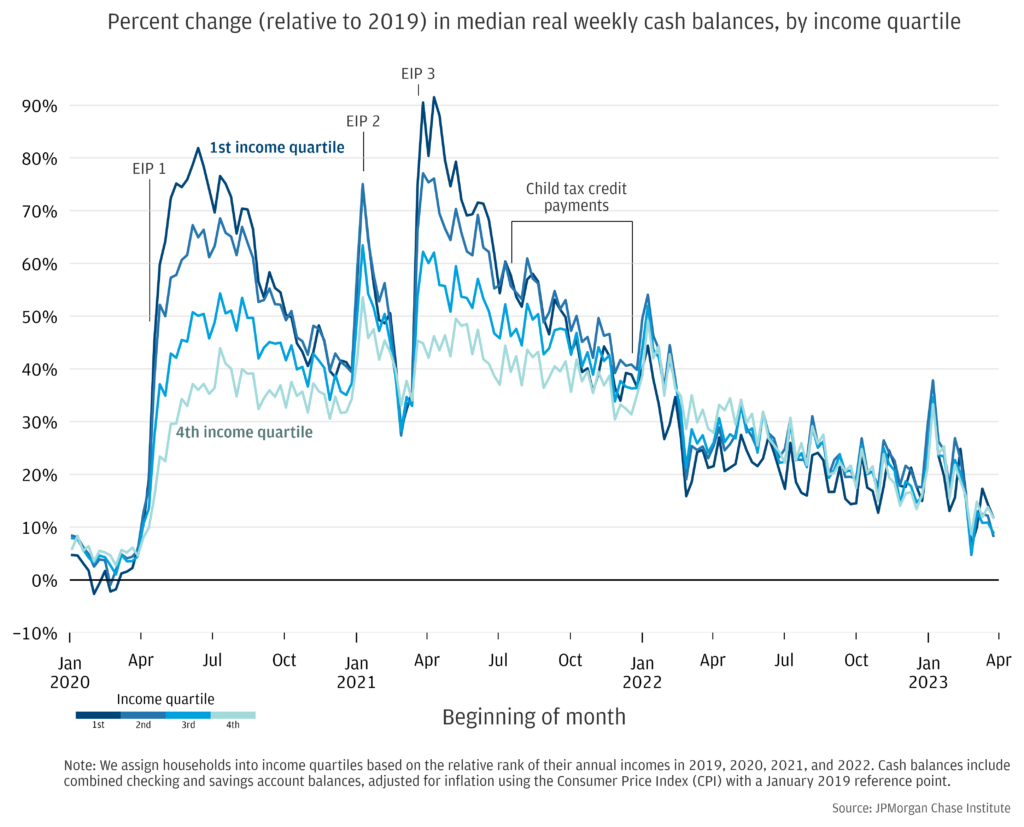How the U.S. Economy Has Avoided a Recession So Far
LONDON (July 19) Following countless recession predictions, the US economy is still churning.
In the latter half of 2022, recession announcements began in earnest. In June ’22, 68% of economists believed recession would hit US shores by 2023. In September, Nouriel Roubini, former IMF economist known as “Dr. Doom” who predicted the 2008 financial crisis, also sounded the alarm bells, warning of a “long and ugly” recession.
In October 2022, former US Treasury Secretary Larry Summers said that recession became almost inevitable once inflation crossed 5%, alongside unemployment over 6%. As recently as this April, Summers again warned that “recession probabilities are going up.”
That was after Summers’ January statement to be “careful of false dawns.” Yet, despite recession announcements becoming trendy, they never officially materialized. Instead, both inflation and unemployment rates are low, indicating a sound economy.
Low Inflation and Unemployment
Junes Consumer Price Index (CPI) report shows inflation dropping to 3%, the lowest since March 2021. Likewise, the unemployment rate dropped to 3.6%, fluctuating between 3.4% and 3.7% since March 2022. This marks a consistently tight labor market, a key counter-recession indicator.
Both unemployment and inflation hitting low ranges are all the more interesting as the Fed Chair, Jerome Powell, hinted multiple times that a tight labor market will have to loosen up to combat inflation. The unemployed usually have less money to spend, which translates to lowering demand.
And if demand for goods and services is lower, this cools the overheated (inflated) economy. Consequently, this translates to a GDP downturn, which the National Bureau of Economic Research (NBER) will combine with other factors to announce a recession officially.
Economy Still Flushed with Cash
As of the latest Bureau of Labor Statistics report, average hourly wages are above the inflation rate, at an annual 4.4%. For the last four consecutive months, earnings have outpaced inflation. Most importantly, consumers have had more cash in bank accounts than in 2019, adjusted for inflation.

According to the JPMorgan Chase Institute, in March 2023, median cash balances were up 10 – 15% for every income quartile. This analysis comes from 9 million Chase customer accounts, both savings and checking.
This absorption layer, initially boosted by stimulus checks post-lockdowns, is the main reason for the delayed recession. Accordingly, consumer sentiment is still high, hitting the most favorable reading since September 2021, at 41% year-over-year shift.
Geopolitics Factoring In
It also has to be noted that the US benefits greatly from Europe’s turmoil. After the sanctions against Russia and the sabotage of the Nordstream 2 pipeline, Germany’s industry is in freefall, having lost access to cheap Russian gas.
Making it less competitive, foreign investments in Germany hit the lowest range since 2013. At the same time, German companies are planning more US investments. The German American Business Outlook survey, covering 200 businesses, revealed that 93% plan to increase US investments over the next three years.
This level of macroeconomic-geopolitical coordination is not surprising. In 2011, Jerome Powell noted that “bad economic news drives people out of stocks and into bonds.” Consequently, this process “bids down the interest rate the government requires to pay.”
Simultaneously, Powell accounted for “turmoil in Europe” to drive people into US government debt (bonds). With the US debt ceiling raised again, the US economy has gained even more recession-absorption stamina.
With that said, the recession may just be postponed. The US budget deficit continues to deepen, hitting $2.3 trillion in June. This is over twice as large a shortfall as before the lockdowns.
Consequently, more money is going into paying interest rates instead of productivity and growth. And if the economy is not growing quickly enough, combined with wage inflation, this may induce an economic downturn – recession.
Investing.com


